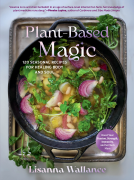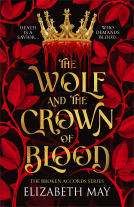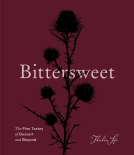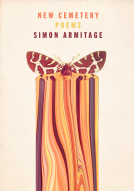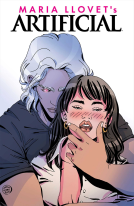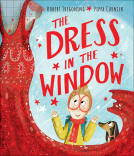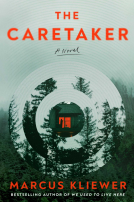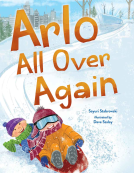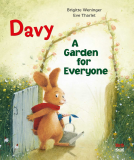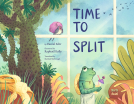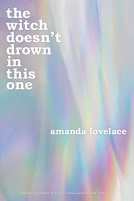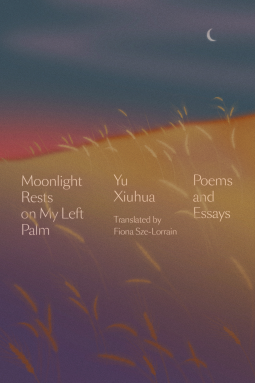
Moonlight Rests on My Left Palm
Poems and Essays
by Yu Xiuhua
This title was previously available on NetGalley and is now archived.
Send NetGalley books directly to your Kindle or Kindle app
1
To read on a Kindle or Kindle app, please add kindle@netgalley.com as an approved email address to receive files in your Amazon account. Click here for step-by-step instructions.
2
Also find your Kindle email address within your Amazon account, and enter it here.
Pub Date Sep 14 2021 | Archive Date Aug 31 2021
Astra Publishing House | Astra House
Talking about this book? Use #MoonlightRestsonMyLeftPalm #NetGalley. More hashtag tips!
Description
Yu Xiuhua was born with cerebral palsy in Hengdian village in the Hubei Province, in central China. Unable to attend college, travel, or work the land with her parents, Yu remained home where she could help with housework. Eventually she was forced into an arranged marriage that became abusive. She divorced her husband and moved back in with her parents, taking her son with her.
In defiance of the stigma attached to her disability, her status as a divorced single mother, and as a peasant in rural China, Yu found her voice in poetry. Starting in the late 90’s, her writing became a vehicle with which to explore and share her reflections on homesickness, family and ancestry, the reality of disability in the context of a body’s urges and desires.
Then, Yu's poem “Crossing Half of China to Fuck You” blew open the doors on the patriarchal and traditionalist world of contemporary Chinese poetry. She became an internet sensation, finding a devoted following among young readers who enthusiastically welcomed her fresh, bold, confessional voice into the literary canon.
Thematically organized, Yu’s essays and poems are in conversation with each other around subjects that include love, nostalgia, mortality, the natural world and writing itself.
Advance Praise
"Yu Xiuhua’s Moonlight Rests on My Left Palm, translated by Fiona Sze-Lorrain, grows out of highly personal terrain. This farmer-poet says in an essay (Moonlight is sectioned by eight lyrical essays): 'We have man-handled so many words that I only dream of using them anew.' Yu says exactly what she means; and Sze-Lorrain honors the feeling and music in intimate translation. Thus, the poet’s language rises out of the natural, tinged by elemental soil and light."
— Yusef Komunyakaa, author of Everyday Mojo Songs of Earth
Marketing Plan
National media campaign including print, radio, and online coverage
Pitch for feature stories and author profiles
Multi-month social media prepublication campaign on Astra House's Twitter, Facebook, and Instagram
Highlight in Astra House newsletters and on website
Targeted media outreach to poetry, feminist, disability advocate reviewers and publications
Digital marketing/publicity campaign including features and reviews
Bookseller outreach
ARC giveaways on Goodreads and NetGalley
Library Marketing
Academic outreach: creative writing/translation, Chinese studies, women's studies departments
Targeted #Bookstagrammer outreach
Available Editions
| EDITION | Other Format |
| ISBN | 9781662600470 |
| PRICE | $21.00 (USD) |
| PAGES | 156 |
Average rating from 19 members
Featured Reviews
I know that I am going to be in the minority, but I actually liked the essays in this collection more than the poetry. There. I said it. The poetry just didn't really speak to me, but that's fine. Poetry is very subjective. However, after having lived in China for almost four years, I found the essays to be more interesting. They speak to a society that is very conformative, but never being able to conform because of the authors cerebral palsy. They speak of people seeking more pain in her poetry than they have any right to. People trying to judge how much she has suffered by equating it with a disability.
My favorite part is when she discusses what it means to be a strong woman and rejection of the word strong in general. "A strong woman is essentially an unfortunate being who can't lean on others for help. In a way, her life is a failure. Fortunately, neither success nor failure is shameful or shocking in life: because of a failed life, her life lies right before her own eyes. We do not live to show others what our lives are, nor do we live to please anyone.... Strength is, therefore, about ourselves..."
I have no doubt that the poems will speak to a great many people, but for me it was the essays. I would recommend this for anyone looking for some poetry or somewhat philosophical essays to dive into. I enjoyed reading about the authors life and childhood as well, but the poems just didn't bring as much to the table for me. I look forward to seeing more by Yu Xiuhua in the future.
Thank you to Astra Publishing House and NetGalley for providing me with an eARC of this book, however all thoughts and opinions are my own.
Yu Xiuhua was born with cerebral palsy in Hengdian Village where she still lives. Her poetry is a an homage to simple living as well as a constant debate between a society that doesn't accept her and her inner world. A beautiful collection of poems and essays that are full of impactful moments. I love how she aches for the approval that comes with sexual desire and the relationship that she has with her own body as a disabled person.
Yu’s poem “Crossing Half of China to Fuck You” is so honest and raw that it takes your breath away. I had underlined half of the book and I resonated with so many of the emotions that she expresses. The collection also explores other themes in depth: motherhood, divorce, family, poverty, belonging and death.
I highly recommend this book and I will keep an eye on the author. Absolutely fascinating.
“One’s experiences can’t serve as a role model for others, nor should it exist as a subject for others to lament.”
Yu Xiuhua is a Chinese poet who sprang to fame after one of her poems went viral. She is a peasant in rural China who has cerebral palsy and had an arranged marriage which she went onto escape when it became abusive, leading to additional stigma due to her being a divorcee, single mother. She writes truthfully, raw fully and also elegantly about these experiences and her home in a mixture of poems and short essays.
I especially loved the short essays in this volume. They were packed with anecdotes, bits of wisdom and fascinating insights into the changes that have taken place in her home town. Her poetry was full of great imagery also.A really fantastic book!
Thanks to NetGalley and the publisher for sending me an ARC in exchange for an honest review.
I very much enjoy poetry and jump anytime the option presents itself to review a collection of them.
Moonlight rests on my Left palm has been a beautiful collection of thoughts, however I did notice a rollercoaster when it comes to enjoying each piece.
I found that I loved the poems, whilst I sometimes struggled to stay focused/invested during the essays.
The writer was able to convey the hardships of living with disability (especially in a culture that's so different from mine), touched many heartstrings and yet was still able to portrey the beauty of life and living it with neverending passion. There were parts that even though I could not relate to, taught me more about this thing called life and how different each one of us perceives it.
I would definitely recommend this book to anyone who already loves poetry or the ones who just starting to dip their toes into it.
 Reviewer 839506
Reviewer 839506
I personally felt that this was a very interesting collection of essays and poems. The essays feel kind of like a memoir but I appreciate its inclusion here. The essays give better insight into Yu Xiuhua's philosophies on writing and living. It definitely helped me understand and appreciate her poems much more.
I'm a sucker for poems that incorporate natural imagery and Yu's use of it was quite profound. I feel like Yu (or maybe the way Fiona Sze-Lorrain translated it) tends to stick with using free verse/open form as a structure a lot, so the flow wasn't as captivating at times. Though aside from that, some of my favourite poems are In the Cotton Fields, Callosity, Love and Autumn Rain.
I love the poignancy in her approach on writing death too. Here is one of my favourite lines:
"We are so remote from death, yet tortured beyond recognition by life itself."
And lastly, the one quote that really spoke to me:
"Because there exists no one purpose in life, we feel a constant void. Nothing but life itself can enter our lives. No matter how hard we try, all endeavours seem dissipated, unable to find their focus point. What a frightening reality. Yet no one knows the afterlife, whether it exists in a similar or greater void. So all we can do is to get by in life, one day at a time."
Thank you NetGalley and Astra Publishing House for providing an eARC of this book!
This was a really beautiful set of poems and essays that ache for longing and connection with nature and the vastness of the world. Though the words and structure are simple, the essays offer a juxtaposition with the imagination of the poems but recontextualizing the author's voice within her body. She is a disabled poet, and writes for escape and imagination. Her essays are sharp, and candid about the patronizing view others have had of her due to her disabilities. I felt I learned a lot from the essays in particular and rather enjoyed the nature writing of the poems. It was an informative and relaxing read at times.
I love poetry and essays. The subjective nature of whether a person loves or dislikes them, connects or cant relate is really fascinating. I really enjoyed this collection from Yu Xiuhua. I felt the essays were stronger, but that could be due to the translation of poetry and how some of the specific feelings/emotions get lost in translation? (I believe this was a translated works?) I would really recommend people try this one out.
Moonlight Rests on My Left Palm: Poems and Essays by Yu Xiuhua
Translated by Fiona Sze-Lorrain
•
There is so much to unpack in this collection that I doubt my review will do it any justice. Yu's poems and essays are a treasure trove of emotion and sensibility. She touches on so many topics in her writing and writes unabashedly about womanhood and desire. As the translator reminds us in her note, Yu became famous after publishing her poem "I Crossed Half of China to Sleep with You".
•
Moreover, Yu paints a vivid portrait of her life as a woman, and as a mother who suffers from cerebral palsy. She gives a glimpse of what life is like in her small rural town of Hengdian and depicts with a touch of melancholy how the passage of time affected her agricultural town. She dwells on what was lost and how progress and modernity have slowly changed Hengdian and its inhabitants.
•
I read this collection with great delight, yet I enjoyed her essays more. Perhaps, it was easier for me to connect with her wondering thoughts and inquisitive mind. Her voice came through as evocative as ever and I sailed through the book. I have read it as an ebook, however, I think this is a book better read in print because I often got lost between the sections.
•
"People need a role model because they have no idea what to do in times of anguish. They can’t find an effective solution, so they need a reference. Once they imagine they have found a plausible reference at last, they might realize how futile it is. Let me say to these people: read more. Reading is a powerful activity: it calms one’s heart. When the mind is quiet, one can experience real joy. Regardless of our unbearable bodies or lives, we are each unique in this world. We ought to cherish ourselves. So why ask for more? I don’t know if these words seem unwarranted, but since I am no one’s role model, I can allow myself to talk nonsense."
•
"Undeniably, a disabled body is a great inconvenience in life, and leaves no room for all kinds of possibilities. But it is also undeniable that the disabled body’s soul does not feel about the external world any less than others. This is what counts most. True joys come from the depth of one’s soul, not the external environment."
•
"Suffering can propel and motivate one to write. On the other hand, suffering is suffering nonetheless. Writing about it can neither alleviate nor alter it. Writing merely provides us a form of expression, much as suffering is palpable and present."
•
"At last I understand that bliss is both concrete and attainable. One does not lose sight of bliss as easily as one may imagine. I am grateful for the strength to find this bliss."
•
"But what poetry is, I don’t know, nor can I speak of it. It is simply an emotion that leaps or drowns. It comes in the guise of a patriotic pose when the soul summons it. It is just a cane for one who staggers in a swaying mortal world."
•
"My morning holds two rows of light one shines as I write another as I bathe"
This book feels like moments of life told in snippets, it created imaginary and I could feel the words while reading this.
There were moments where I felt it could have been a little less narrative and more poetic but overall it was a good read for me.
Thank you, NetGalley for providing an arc of this book in exchange for an honest review.
Readers who liked this book also liked:
L.M Montgomery
Children's Fiction, Comics, Graphic Novels, Manga, Teens & YA
Sayuri Stabrowski
Children's Fiction, Outdoors & Nature, Parenting, Families, Relationships
Roseanne Critelli
Children's Fiction, Literary Fiction, Novellas & Short Stories
